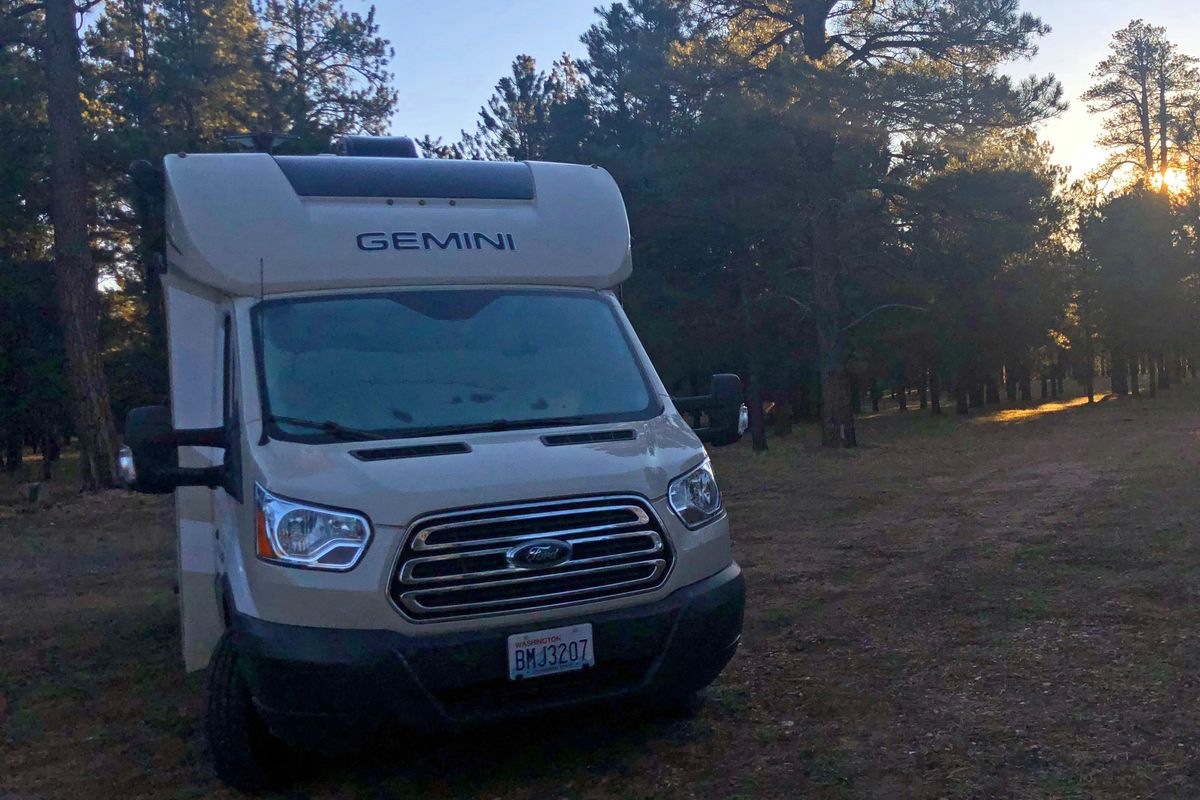Boondocking can be a fun challenge to tackle

One of the many appeals of having an RV is the thought that you can park anywhere and have a place to stay—for free!
But the truth about boondocking is way more complicated. Yes, you can boondock on many public lands, but often those Bureau of Land Management spaces aren’t so beautiful. Take Quartzite, Ariz., one of America's most popular park-for-free destinations. The ORV crowd has turned much of the BLM land around Quartzsite into a dustbowl with a Mad Max end-of-the-world vibe.
Then you have national forest lands, filled with dispersed camping spots. Many are truly beautiful, but boondocking is difficult for more than a few days for most of us because of battery power and holding tank capacity.
Because of the obstacles, we’ve only boondocked a few times. Once, we stayed in Kaibab National Forest down a remote dirt road north of the Grand Canyon. It was fine, but let’s face it—a little creepy. You’ve seen “The Hills Have Eyes,” right?
Another time, we boondocked on a city street in Bellingham, and again it was fine, but we arrived late and hit the road early the next morning. It was questionable whether we were legally parked in that location, but we decided to roll the dice for one night and got away with it.
Though not technically boondocking, our best experience so far was a couple of summers ago when we parked in our friends Jim and Carol Kershner’s driveway in Spokane. Heck, they even made us breakfast.
So where can you boondock legally?
Public lands
The Bureau of Land Management (BLM) oversees more than 240 million acres in the United States. Much of this land is open for boondocking. And most U.S. national forests offer dispersed camping for free.
On the state level, many Department of Natural Resources lands in Washington are open for dispersed camping with a Discover Pass. Most Idaho Endowment Lands, managed by the Department of Lands, also are available for boondocking.
Cities
Increasingly, cities are making RV boondocking much more difficult. In fact, many won’t even allow you to park on the street, let alone stay overnight.
If you’re determined to try, the parking lots of major retailers are a good place to start. Walmart famously used to allow boondocking, but that policy is changing. Many stores now don’t offer overnight RV stays—so check before assuming it’s OK.
Other places to check for boondocking: Tourist visitor centers, churches, convention centers, fraternal organizations and rest areas.
Casinos
We stayed at Northern Quest RV Resort in 2019 and enjoyed the deluxe amenities. As we walked around the area, we were a little surprised to see a huge contingent of RVers right next door camping in the casino parking lot — for free.
It turns out that Washington’s tribal casinos are a popular place to boondock. In Washington, 22 tribes operate casinos around the state. Some, like Northern Quest, offer full-service RV parks. Others allow you to camp in their parking lots for short stays. Idaho has seven tribal casinos—and some of them allow overnight RV stays.
If you’re looking for help finding free casino stays, the website casinocamper.com is devoted to showing you how.
Online help
Besides Casino Camper, several websites can guide you to boondocking spots around the country. Among them:
Final thoughts: “Free” boondocking sounds good, but nothing is really free. You need to have the gear, the capacity and confidence to pull it off successfully. We’re still working on our boondocking skills. Please let us know if you have any tips at goingmobile@spokesman.com.
